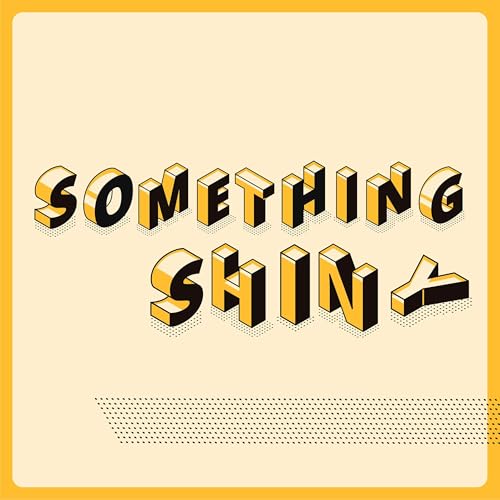David and Isabelle navigated the treacherous landscape of surviving and being the lucky ones; are we trash? Are we seahorses? From defeating the enemy that is loose glitter, to brain regions resembling animals, to why it hurts when we beat up on ourselves, tackling the pain and looking at ourselves with intention. ——Isabelle was told she’s a talker, but she’s also a listener. There’s this thing Isabelle borrows from mindfulness practices and therapy ideas: what you resist persists, what you go with flows, go for the ride. She had this moment the other day, at what point is it going to be bore her? She is easily bored, she is initially excited about and then she loses interest in it, she can be hyper fixated on the thing and then it passes, and then why is it that she’s never been bored in a session—it’s never happened: when will it not be exciting or curious? It’s not the same thing as it being easy or effortless, challenge does not mean something isn’t fun, and maybe it’s one of her favorite things to do. David names: it’s amazing to be put into an environment where it’s dangerous if you don’t pay attention to listening, attending to the patterns and themes in the group—it’s almost what I’ve done in my entire life. Find ways to honor ourselves. I want someone to be able to look at me and respectfully out himself more often, and we don’t see the models are dysfunction. “This kid having ADHD and being in jail” is part of the story. Until everything is shiny! Glitter! Except loose glitter which is Isabelle’s worst nightmare. She learned, the hard way, that loose glitter found it’s way into her world, the moment you try to clean it up, it’s “this glitter will be here always.” The glitter’s arch nemesis is tape—you’re welcome everybody. You still have to sit there for hours, but it makes the cleanup satisfying. David has had the thought of rooms with too much glitter and thought: burn this room. Isabelle names that this is different when there is epoxy style glitter in a floor or a tile, or in a shoe—she loves how there’s a lot of glittery shoes, but the glitter is contained in a plastic shell. And there’s something amazing about the shiny but it needs to stay shiny and not be embedded in anyone’s skin. Isabelle's friend pointed this out: David has a pleasant voice, and Isabelle, back in high school, was on speech team, and she competed in radio speaking, where you essentially you get to be in a room separate from everybody and record into a microphone. That got her over her fear of public speaking, only they used tapes and tape recorders. Who knew? These little things, not exactly fate v. Free will—isn’t it interesting the things that had to come into play were miraculous or exponentially improbable. David thinks his survival in life is pretty lucky. Like LeDerick said, we’re statistically survivors, how did we get there? David is sometimes looking at a river and it’s all pristine and there’s this piece of trash attached to a log not getting sucked down the river, and that's him, he’s a piece of trash, and he got saved. He was powerless being swept by the current—a lot of us were—whether we found partners, or friends, or jobs or something. The odds of David getting an advanced degree, being in a counseling practice, and having the same diagnosis. There was a moment in their office, it was Isabelle’s first or second month, and we were talking about structure and stuff, and it went brain-seahorse. And David went “maybe…maybe…” and everyone else just saw, it’s going to go somewhere else. To finish the thought: once seahorses have partnered, upon the first rays of sunlight entering the ocean, they will do a synchronized dance to each other. Speaking of seahorses: the hippocampus is the part of the brain is responsible for episodic memory, ability to time stamp when something has happened in our life, seal it with a declarative context—and to connect it to David's trash metaphor, how a seahorse gets around: it attaches to kelp or seaweed and it floats on the currents, and it mates for life, and takes care of it’s babies, and it does not make sense, and it exists nonetheless. Isabelle doesn’t think we’re trash on a river, we’re the seahorses. David names that 50% of people with ADHD don’t graduate on time. Isabelle names: a lot seahorses don’t survive, statistically there’s so many don’t make it. David names there’s a lot of compassion and meaning to what we see—Isabelle is doing a lot of shaming to the trash. David is not trying to say we’re mistakes, but he doesn’t think the system sees value in us, but we have to see value in ourselves. You see me, I see you, grab my hand, we’ll do things together, we are trying to survive. David is never going to judge survival. Isabelle quotes Carl Rogers, when the potato sprouts, it’s doesn’t matter if it’s in the earth or in the root cellar, it ...



